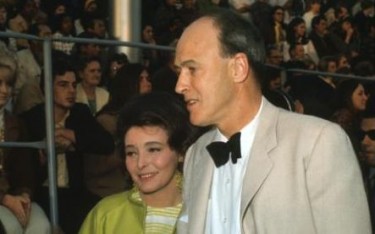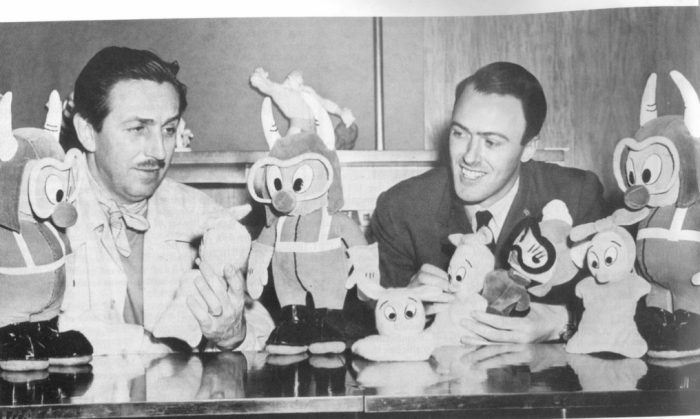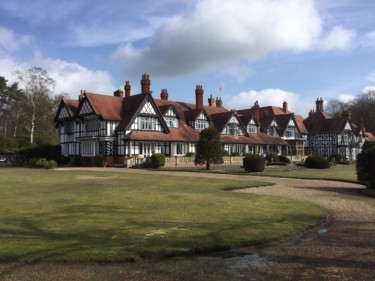Dahl was in Japan for the filming of You Only Live Twice, the new James Bond movie he had adapted – very loosely – from Ian Fleming’s novel. The shoot was based for a time around the city of Kagoshima in the country’s sweltering south, and at the end of the day the cast and crew would relax with a cold beer on set. Sean Connery joined in with the drinking but, as Dahl quickly noticed, left the business of paying to other people.
“He was the only man making a million in the film and he never stood anyone a round,” Dahl later observed. “This was known. They all talked about it. He is not an attractive personality.”
Earlier the sharpness of Dahl’s screenwriting had alerted James Bond producers “Cubby” Broccoli and Harry Saltzman, and they asked him to take on the latest 007 film, which was proving tricky to adapt.
During the Second World War, Dahl and Fleming had both been members of a British spy ring based in New York – Dahl’s life story is littered with improbable details like this – but while the men were firm friends, Dahl was not a fan of his latest Bond adventure, and Broccoli and Saltzman seemed to agree. They gave him the freedom to adapt it however he liked, on three conditions: that Bond would still be identifiable as Bond, that Japan remained the setting, and that the film’s “three-girl rule” – that the spy must sleep with three women during his escapade – remained inviolate. His fee would be $165,500. Dahl agreed, wrote the first draft in eight weeks, and happily informed his US agent in a letter that it was “the biggest load of bull—- I’ve ever put my hand to”.
 Roald Dahl and his wife Patricia Neal 1969
Roald Dahl and his wife Patricia Neal 1969
Connery’s acting was one of the few things that didn’t leave him awestruck. “We went out of our way to give him quips that were incredibly clever, but they only had to be spoken with a straight poker face,” he said. “There was damn little acting for him to do. He walked through it, you know. Literally.” He was delighted with the final result, largely because the director, Lewis Gilbert, left him to his own devices.
Dahl came to the Disney studio to work on the Gremlin project. A children’s book was published of only 5000 copies in 1943. Walt Disney decided to pull his studio out of “The Gremlins” film as Dahl was starting to be displeased with they way things were going and Walt reluctantly decided to cancel further production.
Fleming was beginning to look to Dahl for a leg-up in the movie business too: “If you got a chance of putting in a word with the TV tycoons for ‘Casino’ I shall be very grateful. Money’s despicable stuff, but it buys Renoirs” .
This proved a pre-cursor for further skirmishes with the movie business.
After Dahl’s wife Patricia Neal – a renowned actress in her own right – became ill, Roald needed a financial boost. That’s when Bond, James Bond; came knocking. It was Cubby Broccoli who approached Dahl about adapting Fleming’s brilliant but flawed book You Only Live Twice for the screen; presumably because of Dahl’s friendship with Fleming.
Dahl agreed but immediately found the task difficult once reading, describing You Only Live Twice variously as ‘tired’, ‘bad’ and ‘Ian’s worst book’.”
“You Only Live Twice was the only Fleming book that had virtually no semblance of a plot that could be made into a movie. The concept of Blofeld patrolling his garden of poisonous plants in a medieval suit of armor [sic] and lopping off the heads of half-blinded Japanese was ridiculous. When I began the script, I could retain only four or five of the original novel’s story ideas.
Obviously, the movie had to take place in Japan. We kept Blofeld and Tiger Tanaka and Bond’s pearl-diving girlfriend, Kissy Suzuki. And we retained the Ninjas – those masters of oriental martial arts who use their talents to raid Blofeld’s hideout. But aside from those bits, I had nothing except a wonderful Ian Fleming title.”
He persevered and wrote the script in 8 weeks with a plot that barely resembled the book – in my opinion a missed opportunity – and bluntly stated it to be “the biggest load of bullshit I have ever put my hand to”. At least he was honest.






